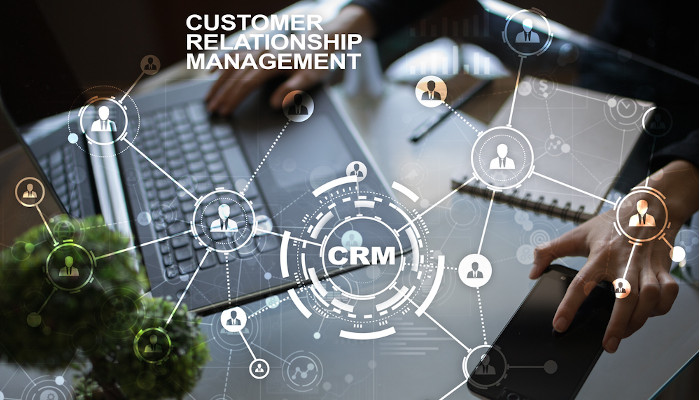Implementing a CRM system in existing company operations can greatly improve customer relationship management, as companies can choose between various suppliers and licensing models. However, there are a few things to consider when deciding on a software solution.
A customer relationship system (CRM) allows summarizing all processes related to a customer, to enhance customer satisfaction with regard to products, services and services, and to reduce the burden on your company’s employees. The program is more than just pure customer data management software and many workflows can be assigned, from sales and marketing to accounting or dispatch of goods to complaints management. Automated applications ensure more efficient and time-saving workflow. Companies that decide to create a CRM system are not only spoiled for choice from many service providers, but must first analyze the requirements they place on the software.
What application areas should CRM cover?
Depending on the company’s internal operations, which one should be clarified Areas of work with CRM software Must be covered. Job analysis helps in identifying which applications can suit the company’s requirements. In addition to general functions such as managing inter-company contacts, options for communicating with customers via email and phone, calendar appointments, and importing and exporting contacts, the CRM system serves other business areas and applications. This applies, for example, to the ticket system in service, task management, budget and cost control in project management, DATEV communication and operations from inquiry to billing in accounting and in the back office, as well as time, attendance, vacation and departmental and duty rosters in personnel management. It is important that the software also takes data protection and GDPR compliant work into account. In addition to an understandable and transparent data protection declaration, it must be ensured that the minimum amount of personal data possible is requested and only with consent, it is only used for specific purposes and is transmitted securely using an SSL certificate and 4096-bit encryption. It should also be possible to change and record data access, and delete data if necessary.
Almost done!
Please confirm your email address!
Click on the link in the email we just sent you. Also check your spam folder and whitelist us.
More information about the news.
Various licensing models: in-place, on-demand, and hybrid customer relationship management systems
In addition to the potential application areas, the company’s technical requirements also play an essential role when selecting a customer relationship system. Depending on the licensing model, CRM can be installed on either the company’s own server or Outsourcing in the cloud has become. Local solutions allow you to purchase and install the software on your own server. The advantage is that the company has complete control over sensitive company data. However, it is also responsible for the operation, availability of the program, and the regular implementation of updates and upgrades in order to ensure data security and bridge security holes. For this, the company has to provide appropriate IT resources. By using on-demand solutions, internal resources can be saved by outsourcing to a provider. Cloud systems are available at a monthly rental price, and in addition to automatic updates and upgrades, they offer encrypted data transfers. Company data can be saved in a private or open cloud. The disadvantage is that companies give up some of their control. However, there are also hybrid solutions. Depending on the company’s IT infrastructure, interfaces between cloud systems and server systems can be used.
CRM Providers in comparison and costs incurred for implementation
Many of the certified CRM providers in the market provide their customers with on-demand and on-premise systems, despite their similarities in most of the functions. Salesforce, for example, only offers hosting as a software as a service (SaaS) with cloud connectivity, while sugarCRM, TecArtOr Adito or SAP offer both hosting options to choose from. SAP’s CRM solution is a world leader in the market, SugarCRM is available as an open-source variant and TecArt, headquartered in Erfurt, impresses with an individually adaptable modular system. When deciding on a provider, company headquarters should not be neglected. While Tecart, Adito and SAP are German companies, Salesforce and sugarCRM are based in the USA. Costs also play an important role. In addition to the known cloud or server licensing costs, there are other costs hidden when setting up a CRM system, for example for support, maintenance, sponsorship, in-house training, staffing, testing systems implementation, or hardware costs for server installation.

“Total coffee aficionado. Travel buff. Music ninja. Bacon nerd. Beeraholic.”








More Stories
Wealthy families take more risks when it comes to money.
Salesforce and NVIDIA Form Strategic Collaboration to Drive AI Customer Innovation
Changing banks causes problems for customers